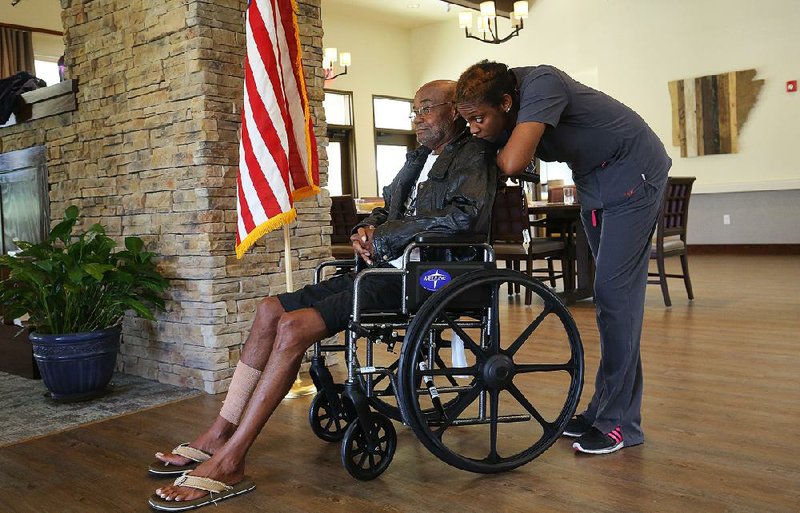This story is a part of The Article, your guide to Arkansas news and culture, presented by the Democrat-Gazette. Sign up for The Article's twice-weekly newsletter here or to see stories that have appeared in past newsletters, go here.
Both chambers of the General Assembly have approved legislation that would introduce the most significant changes to the state's minimum nursing home standards in decades.
It’s now headed to Gov. Asa Hutchinson who, in a statement provided by his spokeswoman, said he will sign the bill into law.
What does the new bill propose?
House Bill 1776 would:
• Replace state law that mandates specific nurse-to-resident ratios on a per-shift basis with a requirement that nursing homes average 3.36 "direct care hours per resident day" over a one-month period
• Allow nursing homes to count medication assistants and therapists as "direct care staff” (current laws explicitly excludes those two categories of workers)
• Repeal financial penalties for nursing homes found to have a pattern of violating state staffing laws
Why do supporters of the bill want these changes?
The bill’s supporters have said the classification of medication assistants and therapists as "direct care staff" matches federal regulations.
"The old staffing ratios/shifts are unique to Arkansas and were created over 20 years ago – before extensive federal staffing requirements and elaborate, transparent and audited federally mandated data reporting," said Executive Director Rachel Bunch, of the Arkansas Health Care Association. "Flexibility with staffing in a changing workforce will ultimately benefit our residents."
Supporters have also argued that the 3.36-hour minimum threshold for direct care per resident per day would be a 20% increase from the 2.8 hours per resident per day to which the current laws equate.
What do those who oppose the bill have to say?
Residents' advocates who oppose the bill said staffing levels are the most important measure to determine quality of care at nursing homes.
"My opinion is there will be more neglect and abuse and less accountability for the nursing homes,” said Martha Deaver, president of Arkansas Advocates for Nursing Home Residents.
Herb Sanderson, director of AARP Arkansas, said he believes nursing homes will be able to count what is now "administrative and managerial work" as direct resident care, which he said would "dilute" the care residents receive.
The executive director of a New York-based nonprofit focused on federal staffing regulations said the bill's stated purpose -- to align with existing federal rules the bill describes as "highly proscriptive" -- is flawed.
Richard Mollot, who runs the New York-based nonprofit Long Term Care Community Coalition said federal regulations are generally a strong foundation, but they're hard to enforce independent of state laws and aren't standardized in a way that adequately covers nursing homes of varying sizes.
See who voted for the bill in the House and the Senate, and read more about the legislation from reporter Eric Besson.
